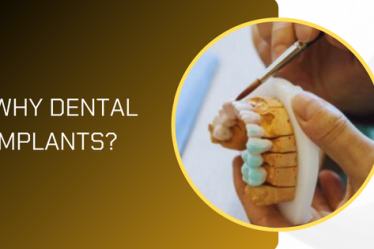
As individuals age, dental health becomes an increasingly important aspect of their overall well-being. Tooth loss can occur due to a variety of factors, including periodontal disease, tooth decay, and physical trauma. Implant dentistry offers a viable solution for older adults who want to restore their oral health and maintain a good quality of life. However, implant dentistry for the elderly population comes with unique concerns and requirements.
Age-Related Health Considerations
The first concern when considering implant dentistry for the elderly is the potential impact of age-related health conditions on the treatment outcome. Some common ailments that can affect implant placement and success include:
Osteoporosis
Osteoporosis is a bone disorder characterized by a decrease in bone density, leading to fragile bones. This condition can particularly affect the jawbone, which may compromise implant treatment. An inadequate amount of jawbone can hinder the osseointegration process essential for implant stability. Dentists must carefully assess bone density before proceeding with implant placement and may suggest using bone grafts to improve jawbone quality in such cases.
Diabetes
Diabetes can adversely affect oral health and wound healing, both of which are crucial factors in implant dentistry success. Uncontrolled blood sugar levels can pose significant risks for infection and implant failure. Therefore, it is advised that elderly patients with diabetes work closely with their medical team to ensure optimal diabetes management before undergoing implant treatment.
Cardiovascular Diseases
Certain cardiovascular conditions, like hypertension or a history of heart attacks, may raise concerns when considering dental implant surgery. According to the American Heart Association, dental treatments can lead to the release of bacteria into the bloodstream, potentially affecting heart valves or causing inflammation. Elderly patients with a history of cardiovascular disease must consult with their cardiologist to determine the appropriate precautions before undergoing implant surgery.

Dental Implant Treatment Adaptations for Elderly Patients
Given the unique circumstances faced by older adults, certain adaptations to conventional implant treatment may be necessary to improve the success rate:
Patient Evaluation and Multidisciplinary Approach
A thorough medical and dental evaluation is essential to assess the suitability of elderly patients for dental implant treatment. This evaluation will help identify any systemic health conditions that may pose risks during implant surgery. A multidisciplinary approach involving input from the patient’s physician, cardiologist, or endocrinologist can ensure dental implant treatment takes into account all relevant medical factors.
Modified Treatment Planning
Traditional dental implant procedures involve placing a titanium post directly into the jawbone. However, older adults may require an alternative approach due to insufficient jawbone structure or age-related health considerations. Guided implant surgery, using computer-designed surgical guides, can offer a more precise and minimally invasive method for implant placement. Additionally, the use of zygomatic implants, which anchor to facial bones rather than the jawbone, can be explored as an alternative.
Focus on Preventive Dentistry
Preventing dental complications is particularly crucial for the elderly population. Regular dental check-ups, professional cleanings, and promoting good oral hygiene habits play a vital role in maintaining dental stability. Preventive measures can help identify issues early and avoid more extensive dental procedures in the future.
Consideration of Prosthetic Options
Implant dentistry offers various types of prosthetic options, from single crowns and bridges to complete dentures. When planning dental implant treatment for elderly patients, it is important to consider their lifestyle, overall health, and financial factors, and choose the most appropriate prosthetic option to meet their individual needs.
The Benefits of Implant Dentistry for the Elderly
Despite the unique concerns and requirements of elderly individuals, dental implants can offer significant benefits, including:
- Improved Chewing Function: Dental implants can increase chewing efficiency and make eating more comfortable.
- Enhanced Appearance: Replacing missing teeth with dental implants can dramatically improve facial esthetics and restore the patient’s confidence.
- Preservation of Bone Structure: Implants preserve the jawbone by stimulating the bone, similar to natural roots.
- Better Quality of Life: Implants can help improve speech, make self-care more manageable, and contribute to overall well-being.
Conclusion
Implant dentistry can be a viable solution for elderly patients desiring to regain a healthy and functional smile. Although elderly patients may present unique challenges due to age-related health conditions, by incorporating personalized assessments and adapting treatment plans, dentists can successfully address these concerns. Careful medical and dental evaluations, modified treatment planning, and focusing on preventive dentistry can significantly improve the success rate of dental implants in the elderly population. Ultimately, the benefits of implant dentistry can improve the quality of life for older adults seeking to enhance their oral health.


